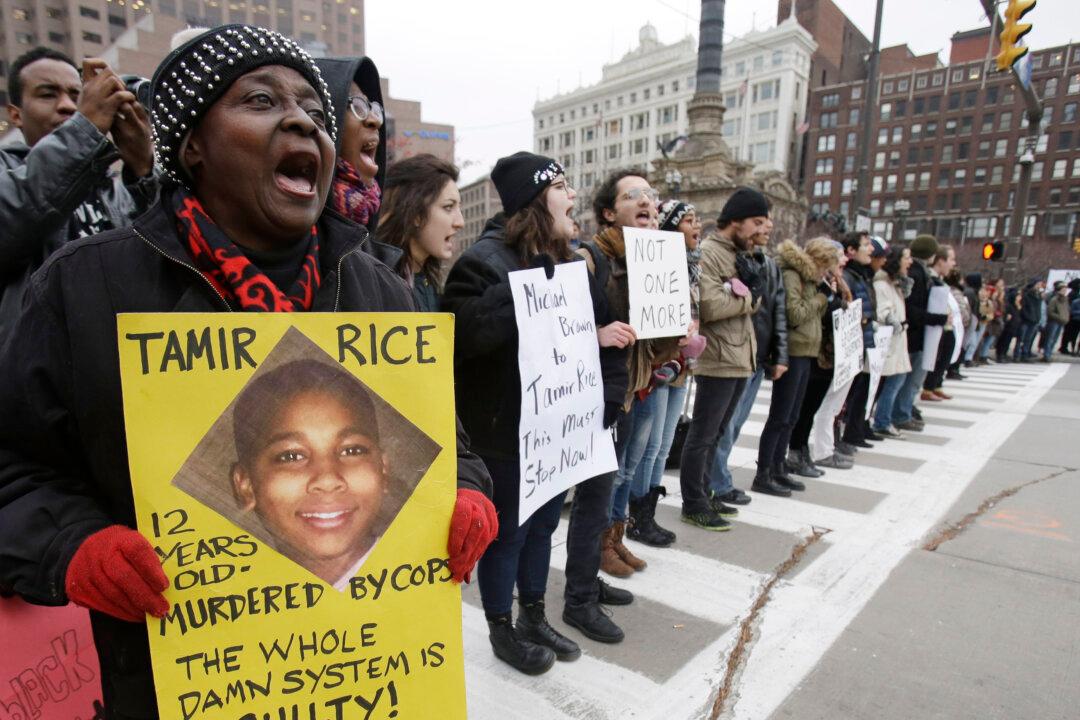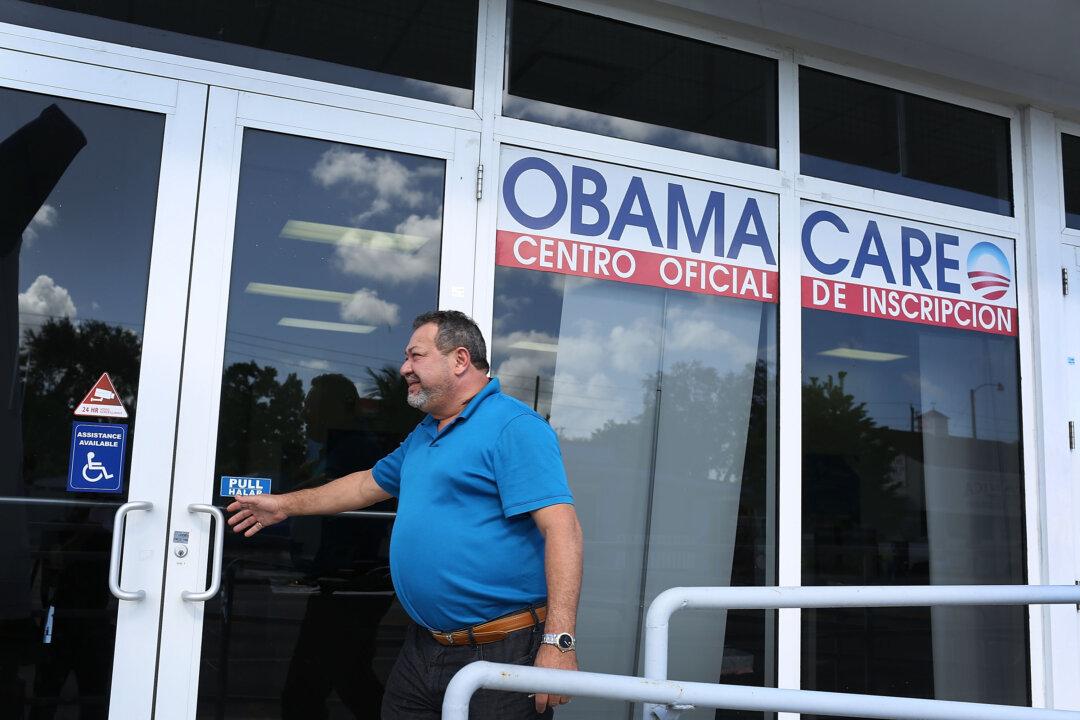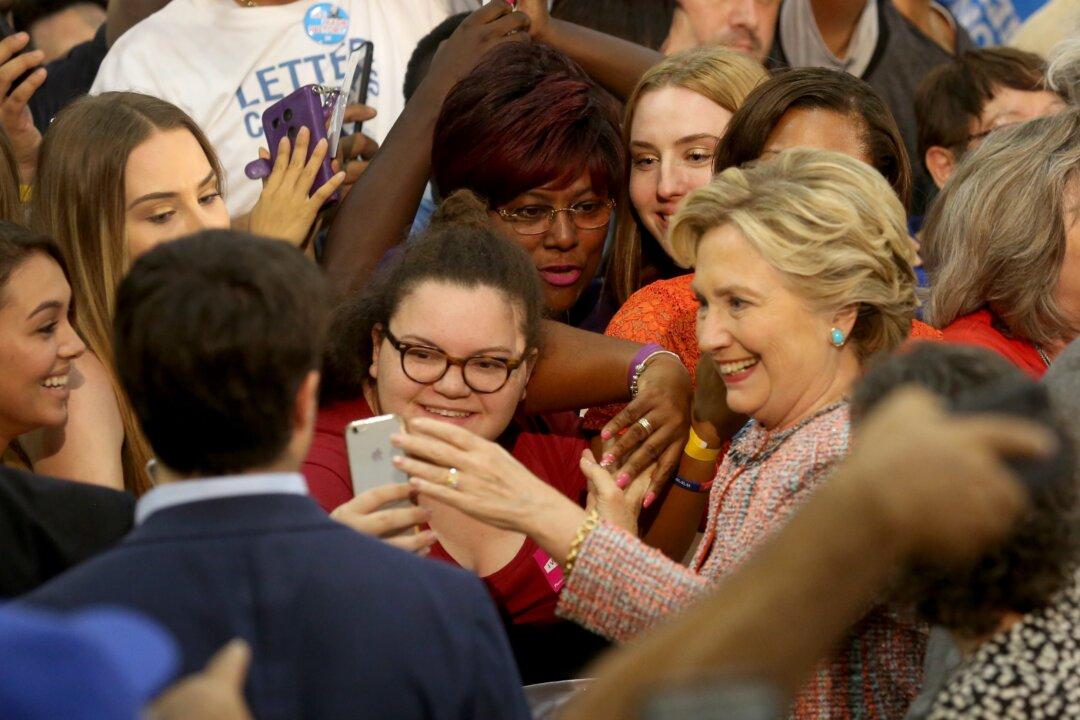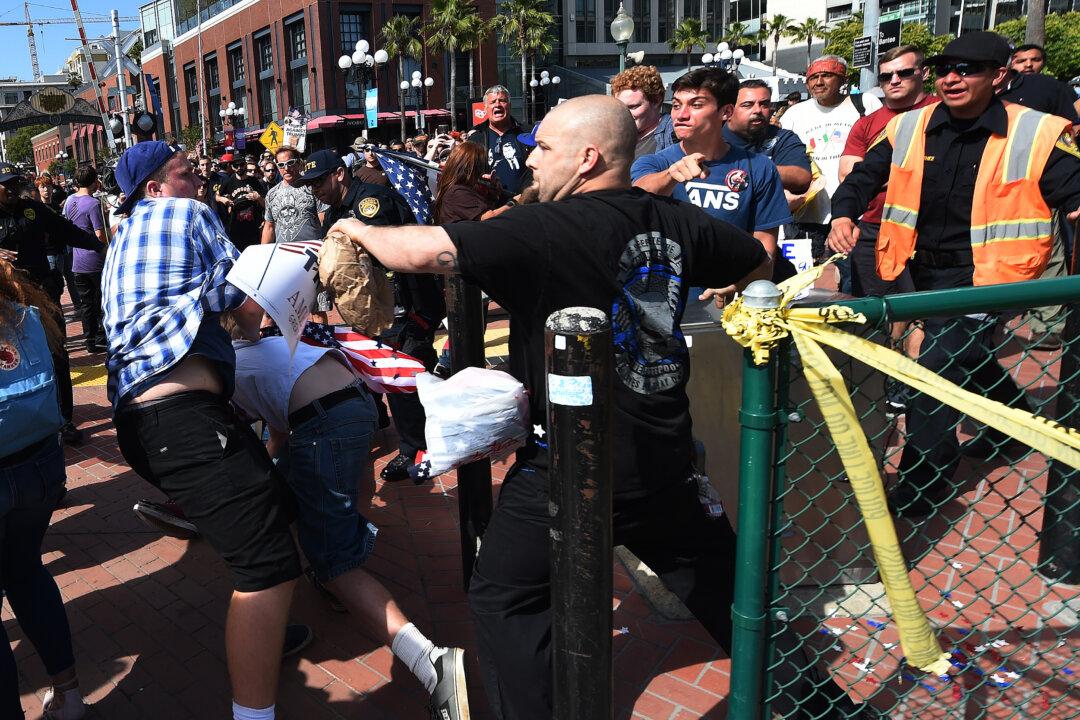The city of Cleveland, Ohio, agreed on April 25 to pay $6 million to the family of Tamir Rice—the 12-year-old African-American boy who was shot by a white police officer in 2014.
The U.S. District Court in Cleveland said the city will pay $3 million this year and the other half next year. Tamir’s estate will receive $5.5 million, while his mother Samaria Rice and his sister Tajai Rice will each receive $250,000. The deal does not resolve any other legal issues, and there was no admission of wrongdoing in the settlement.
“The resolution is nothing to celebrate because a 12-year-old child needlessly lost his life,” said the Rice’s attorney, Subodh Chandra. Rice was shot while playing with a pellet gun outside a recreation center on Nov. 22, 2014.
The wrongful death suit filed by his family and estate against the city, officers, and dispatchers who were involved accused the police of acting recklessly when they confronted the child.





